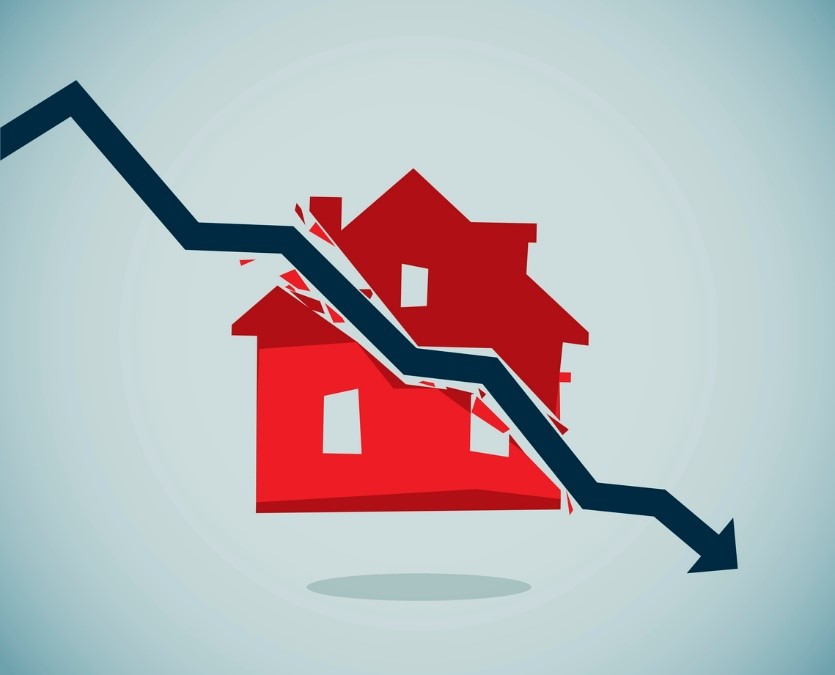What happens if the real estate and/or stock market crashes?
Fall is here in the Northeast, my little girl started high school last month, and last Friday we closed on our 10th apartment community! Congratulations and a big THANK YOU to our investors and partners for making it happen. Park Village Apartments is a 350-unit property in Duncanville, Texas, one of the fastest-growing submarkets of DFW. We are constantly searching for value, and when we find it we jump on it, which leads me into this month’s ramble.
As both the real estate market and the stock market continue to outperform expectations, I hear people talking about things being “overheated.” As a matter of fact, one of the most common questions that I get from investors is “What happens if the real estate and/or stock market crashes?”
I love that question, because I believe that generally speaking, apartment syndication as an investment class is exponentially safer than the stock market. That’s not to say that I don’t have money in the stock market as well, it’s just that as I move toward retirement, having steady income and paying fewer taxes becomes vitally important to my future. If we use 2008 as an example of the worst-case scenario, the chart below shows how various popular investments fared according to Morningstar.

Did housing prices go down as well? Absolutely. Did rents go down? Not so much, and that’s one reason why I am so excited about the power of investing passively in apartment communities. According to the 2016 US Census American Community Survey, (ACS), the average rents in Texas, and especially in the Dallas market where MQ Ventures primarily invests, remained steady in most areas. Some submarkets fluctuated +/- 10-15% or so, but in short, communities that were already cash-flowing, remained so.
At the end of the day everyone needs a place to live, so fast-forward to today’s market, and the story gets even better. In most major markets, the bulk of new construction is taking place in the “Class A”, or luxury end of the market, but my company focuses on Class B properties where the least new construction is happening, yet where the demand is the greatest. With rents stabilizing and wages growing, Class C and D renters also have the opportunity to trade up.
One day the real estate market will go down, no question. But when people can no longer afford their homes, they rent. At the same time, high-end renters often trade down. Both of those dynamics provide us with opportunity to attract tenants. All while the cash flow keeps coming.
In summary, I’m conservative, and I’m always thinking about the worst-case scenario to protect our investors. When things crash, there is a good chance that the stock market will crash first. I feel great about multifamily because if the worst-case indeed happens, apartment communities can provide solid cash flow while we wait for things to recover.
That makes me excited, and it’s why I do what I do. Every accredited investor should have multifamily investments in their portfolio. Personally, I’m more afraid of NOT having them, and that’s why I continue to spread the word.
Finally, most of you received my mail last week about Northern Cross, our next deal in Dallas. If you are an accredited investor and interested in participating, please let me know immediately, and I’ll send you the Investment Package.
About the Author
Holly Williams has spent more than 25 years as an executive in the advertising and market research industries, and a few years into her career she started making a little money. As the years went on, she found herself paying more and more of her salary in taxes, getting very little in return. She was an accredited investor and didn’t even know what that was. It’s the big secret that most of the “financial advisors” don’t WANT you to know.
Now with more than two decades of building wealth through passive Real Estate investments and in excess of 100M in real estate investments to her credit, Holly Williams is one of the nation’s leading Syndicated Multifamily Real Estate Investment experts.
The investment aspect is straightforward – Holly works with the best in the world at Syndicated Multifamily Investing, and the returns generated and portfolio of properties owned is a testament to that.
The cherry on top when working with Holly is the education aspect available for those who want it. Holly shares her real estate investment knowledge and her personal network freely with her partners.
